
Pitesti: The Heartbeat of Southern Romania
Nestled in the southern part of Romania, Pitesti is a charming city known for its rich history, vibrant culture, and picturesque landscapes. As the capital of Arges County, Pitesti is a perfect blend of old-world charm and modern-day conveniences, making it an ideal destination for tourists seeking an authentic Romanian experience. One of the city's most notable attractions is the Trivale Park, an expansive green space perfect for leisurely strolls, picnics, and outdoor activities. The park is home to the mesmerizing Trivale Monastery, a serene spiritual retreat that dates back to the 17th century. Another must-visit site is the Pitesti Art Gallery, where you can immerse yourself in Romania's rich artistic heritage. For those interested in history, the Arges County Museum offers a deep dive into the region's past with exhibits that range from ancient artifacts to modern history. The city also boasts a lively shopping scene, particularly at the Pitesti Mall, where you can find a variety of local and international brands. Don't miss the chance to explore Pitesti's local markets, where you can savor traditional Romanian cuisine and purchase unique handicrafts. Pitesti is also renowned for its cultural events, including the annual Tulip Symphony, a breathtaking flower festival that transforms the city into a sea of vibrant colors. Whether you're a history buff, nature lover, or cultural enthusiast, Pitesti offers a little something for everyone, making it a must-visit destination in Romania.
Local tips in Pitesti
- Visit Trivale Park early in the morning to enjoy the tranquility and avoid the crowds.
- Try local dishes at traditional Romanian restaurants like 'La Strada' for an authentic experience.
- If visiting in spring, don't miss the Tulip Symphony festival for a stunning display of flowers.
- Use public transport or walk to explore the city's attractions conveniently and affordably.
- Check the local calendar for cultural events and festivals to make the most of your visit.
Pitesti: The Heartbeat of Southern Romania
Nestled in the southern part of Romania, Pitesti is a charming city known for its rich history, vibrant culture, and picturesque landscapes. As the capital of Arges County, Pitesti is a perfect blend of old-world charm and modern-day conveniences, making it an ideal destination for tourists seeking an authentic Romanian experience. One of the city's most notable attractions is the Trivale Park, an expansive green space perfect for leisurely strolls, picnics, and outdoor activities. The park is home to the mesmerizing Trivale Monastery, a serene spiritual retreat that dates back to the 17th century. Another must-visit site is the Pitesti Art Gallery, where you can immerse yourself in Romania's rich artistic heritage. For those interested in history, the Arges County Museum offers a deep dive into the region's past with exhibits that range from ancient artifacts to modern history. The city also boasts a lively shopping scene, particularly at the Pitesti Mall, where you can find a variety of local and international brands. Don't miss the chance to explore Pitesti's local markets, where you can savor traditional Romanian cuisine and purchase unique handicrafts. Pitesti is also renowned for its cultural events, including the annual Tulip Symphony, a breathtaking flower festival that transforms the city into a sea of vibrant colors. Whether you're a history buff, nature lover, or cultural enthusiast, Pitesti offers a little something for everyone, making it a must-visit destination in Romania.
When is the best time to go to Pitesti?
Iconic landmarks you can’t miss
Ștrand Park
Experience the serene beauty of Ştrand Park in Pitești, a perfect blend of nature and recreation for every traveler.
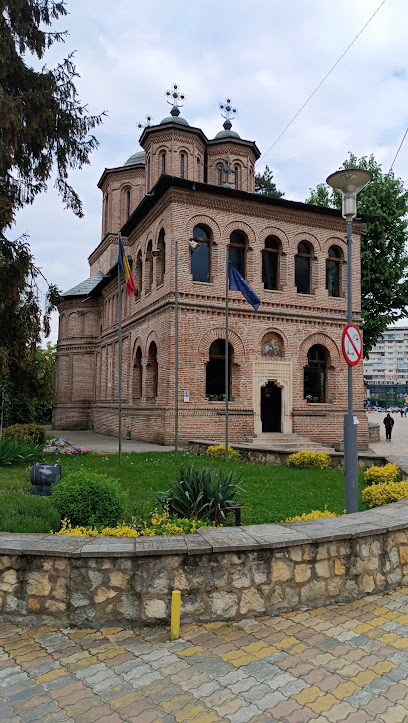
Trivale Natural Parc
Explore the natural beauty and tranquility of Trivale Natural Parc in Pitești, where nature and recreation seamlessly intertwine.
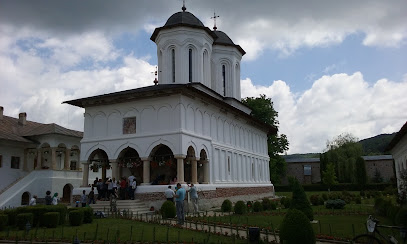
Zoo Pitesti
Experience the vibrant wildlife and conservation efforts at Zoo Pitesti, a must-visit tourist attraction in Pitești, Romania.
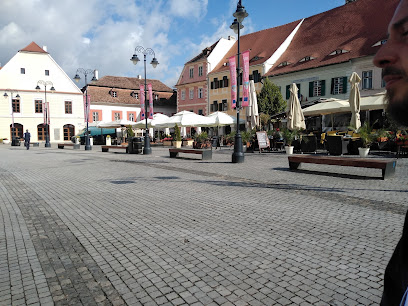
Parcul 1907
Explore the tranquil beauty of Parcul 1907, a lush park in Pitești, Romania, perfect for relaxation, family outings, and cultural events.
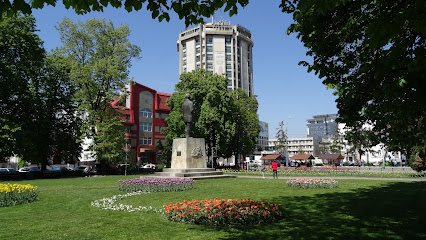
Holy Trinity
Explore the Holy Trinity Convent in Pitești, a serene blend of spirituality, history, and stunning architecture in the heart of Romania.
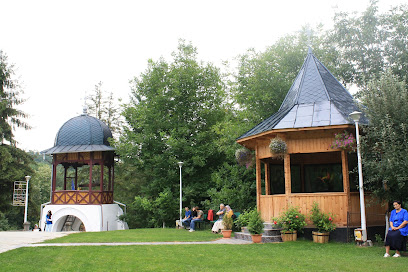
Park Meadow Arges
Explore the lush landscapes and vibrant atmosphere of Park Meadow Arges, a serene escape in the heart of Pitești, Romania.
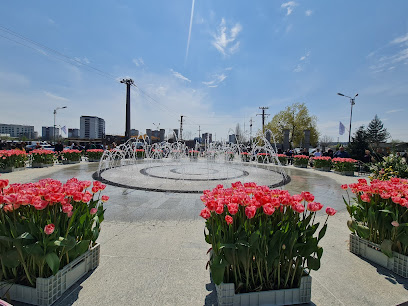
Fountain Trivale
Explore the serene landscapes and vibrant wildlife of Fountain Trivale, a hidden gem in Pitești, Romania, perfect for nature lovers and outdoor enthusiasts.
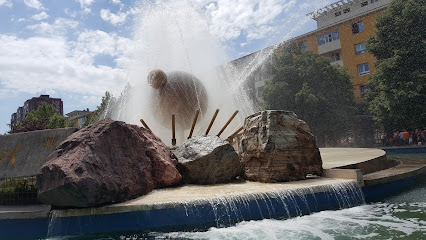
Pitesti Prison Memorial
Explore the Pitesti Prison Memorial, a poignant museum revealing Romania's dark history of political repression and the fight for human rights.
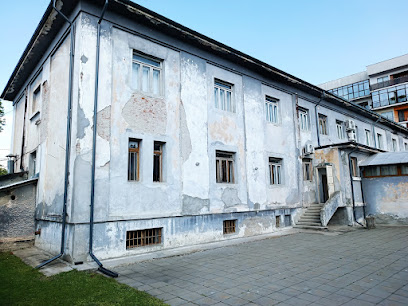
Holy Friday Church
Discover the spiritual and architectural beauty of Holy Friday Church in Pitești, a must-visit for culture and history enthusiasts.
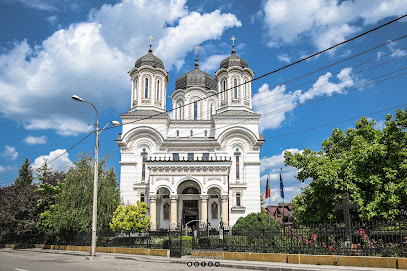
The County Museum
Explore the captivating collections at The County Museum in Pitești, where Romania's cultural heritage comes to life through art and history.
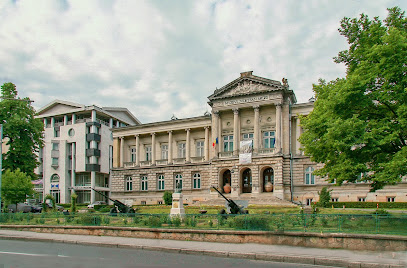
Heroes' Gate
Explore Heroes' Gate in Pitești, a stunning historical landmark honoring bravery and sacrifice, surrounded by tranquil parks and rich culture.
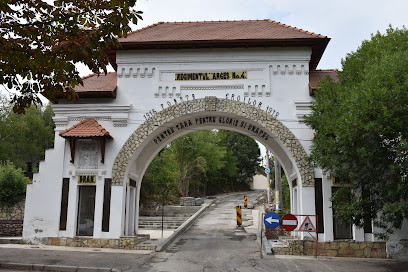
Hint Escape Rooms
Experience the thrill of teamwork and problem-solving at Hint Escape Rooms in Pitești, an ultimate destination for adventure seekers.
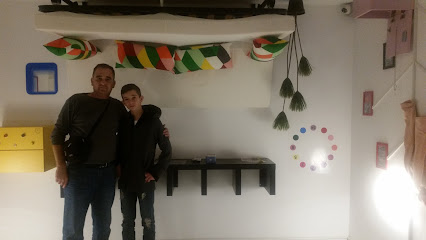
Monument Experimentul Pitești
Discover the poignant history at the Monument Experimentul Pitești, a landmark dedicated to remembering the victims of Romania's past.
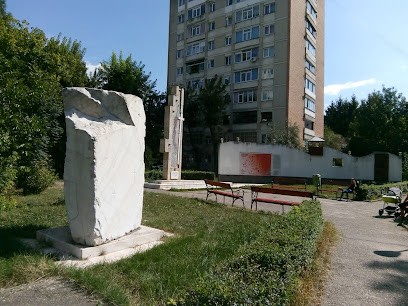
The Statue of Mircea the Elder
Explore the Statue of Mircea the Elder in Pitești - a historic monument celebrating Romania's rich heritage and cultural legacy.
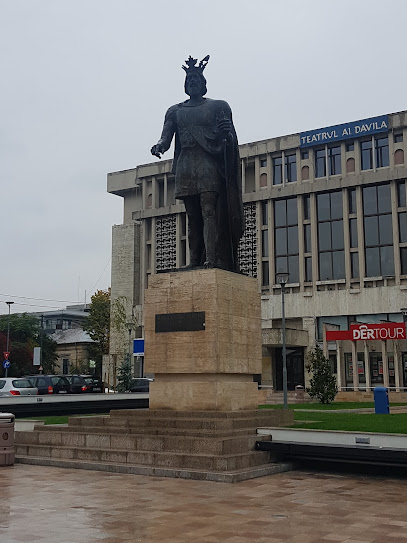
Monumentul „1907” din Pitești
Explore the Monumentul „1907” in Pitești, a stunning historical monument that embodies the spirit and resilience of Romania's past.
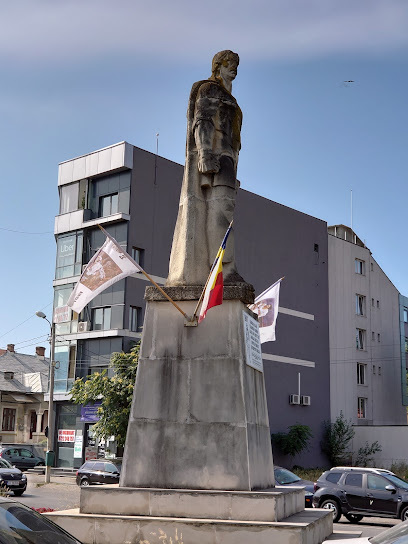
Unmissable attractions to see
Curtea de Argeș Monastery
Explore the breathtaking Curtea de Argeș Monastery, a historical landmark rich in culture and surrounded by natural beauty in Romania.
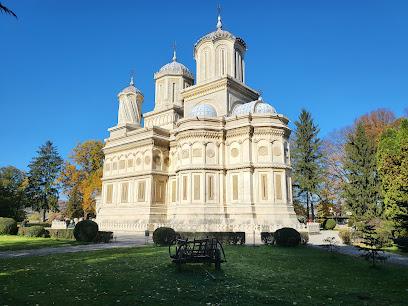
Parcul Chindia
Experience the beauty and history of Parcul Chindia, Târgoviște’s serene park and cultural hub, perfect for relaxation and exploration.
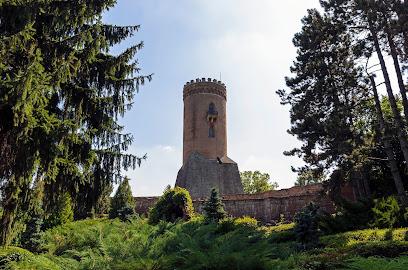
Ștrand Park
Explore the beauty and tranquility of Ștrand Park, a beloved green space in Pitești, perfect for relaxation, recreation, and cultural experiences.
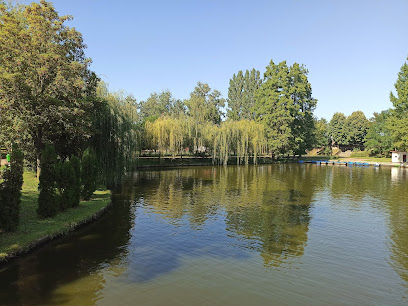
Mănăstirea Dealu
Explore the historic Mănăstirea Dealu, a serene monastery in Viforâta, Romania, rich in culture, spirituality, and breathtaking landscapes.
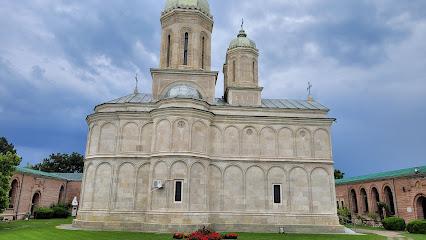
Golești Museum
Discover the rich cultural heritage of Romania at the Golești Museum, where history, art, and nature converge in a captivating experience.
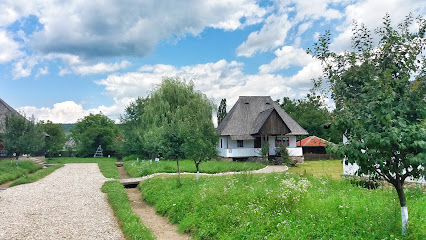
Trivale Natural Parc
Discover the tranquility of Trivale Natural Parc in Pitești, a natural haven with scenic trails, diverse wildlife, and lush greenery for all outdoor enthusiasts.
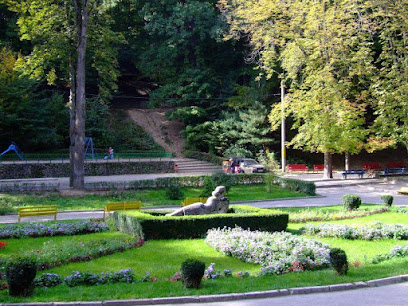
Zoo Pitesti
Experience wildlife up close at Zoo Pitesti, a family-friendly attraction in Pitești that combines fun, education, and conservation.
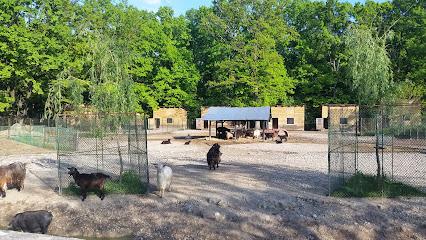
Zoo Pitesti
Explore the fascinating wildlife at Zoo Pitesti, a top tourist attraction in Romania, perfect for family outings and nature enthusiasts.
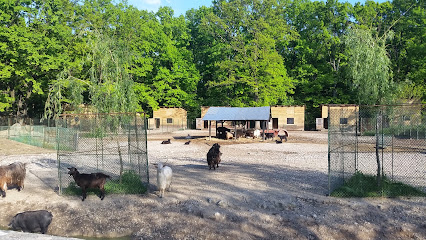
The Musical Fountain
Experience the magic of the Musical Fountain in Pitești, where music and water unite for a stunning spectacle every weekend evening.
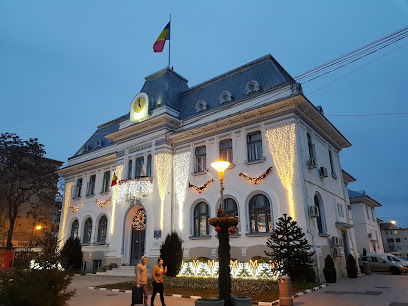
Parcul 1907
Experience the tranquility and historical charm of Parcul 1907, a lush urban park in the heart of Pitești, Romania.
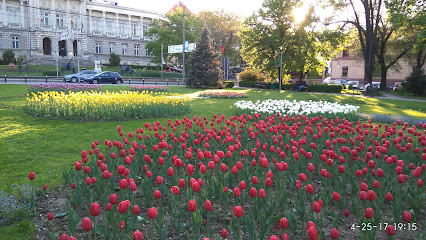
The Royal Court of Târgoviște
Explore the Royal Court of Târgoviște, a historical landmark embodying the rich heritage and regal past of Romania, featuring stunning architecture and captivating stories.
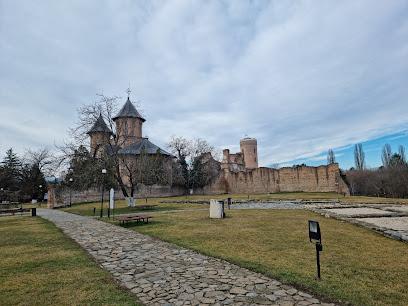
Holy Trinity
Explore Holy Trinity in Pitești - a serene Orthodox church and convent steeped in history and stunning architecture, perfect for cultural exploration.
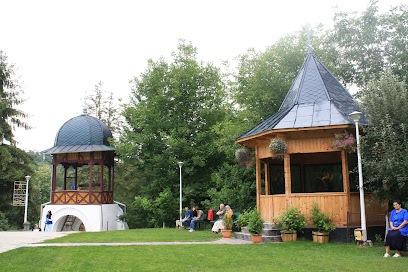
Park Meadow Arges
Explore the serene beauty of Park Meadow Arges, a lush urban park in Pitești perfect for relaxation, leisure activities, and connecting with nature.
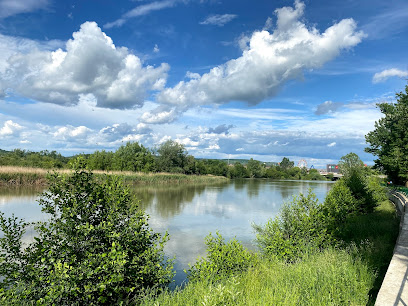
Saint Nicholas Church
Explore the architectural beauty and spiritual history of Saint Nicholas Church, a must-visit Orthodox landmark in Curtea de Argeș, Romania.
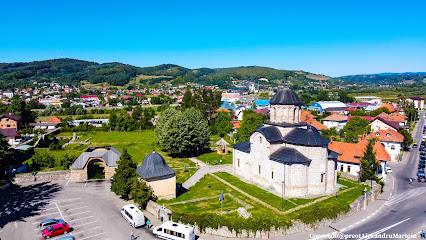
Youth Park
Explore Youth Park in Pitești, a peaceful retreat with lush landscapes, recreational activities, and vibrant community events, perfect for all ages.
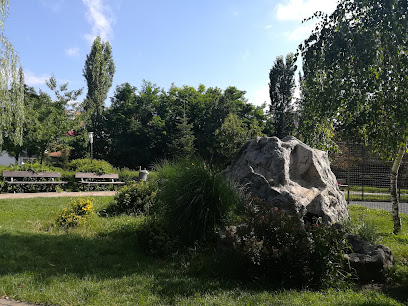
Essential places to dine
Cornul Vânătorului
Experience exquisite dining and versatile event hosting at Cornul Vânătorului in Pitești – where flavor meets hospitality.
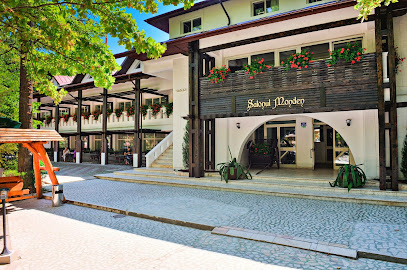
La Butoaie
Discover authentic Romanian cuisine at La Butoaie in Pitești – where tradition meets taste in a warm atmosphere.
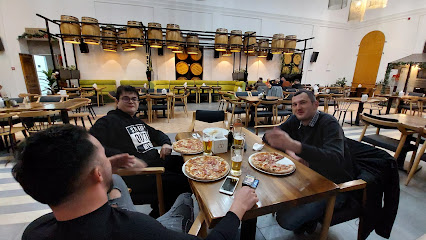
Garden Pub
Discover delightful culinary experiences at Garden Pub in Pitești, where traditional flavors meet modern dining in a charming setting.
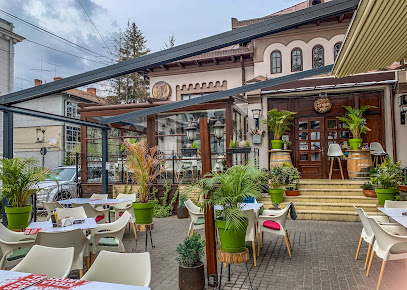
La Tuciuri
Experience the heart of Romanian cuisine at La Tuciuri in Pitești, where every dish tells a story and every meal is memorable.
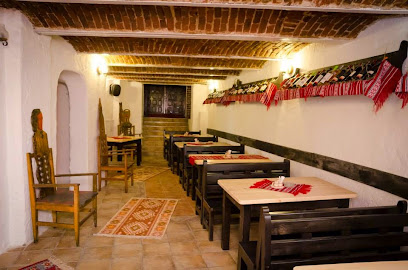
Casa Argeșeană
Discover authentic Romanian cuisine at Casa Argeșeană in Pitești - a perfect blend of tradition and taste.
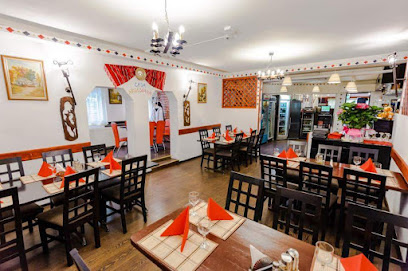
Bistro 27
Discover Bistro 27 in Pitești - where local flavors meet international cuisine in a warm and inviting atmosphere.
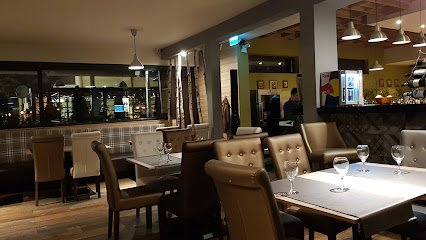
Restaurant Matteo
Experience the best of Romanian cuisine at Restaurant Matteo in Pitești - where tradition meets modern culinary artistry.
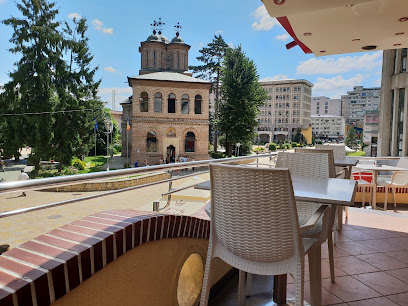
Autoservire Central
Experience authentic Romanian cuisine in Pitești at Autoservire Central – where tradition meets taste in a cozy setting.
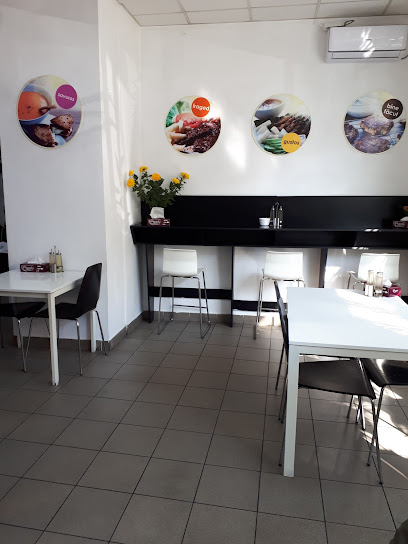
La Nea Ilie
Experience the essence of Romanian cuisine at La Nea Ilie - where flavor meets hospitality in Pitești.
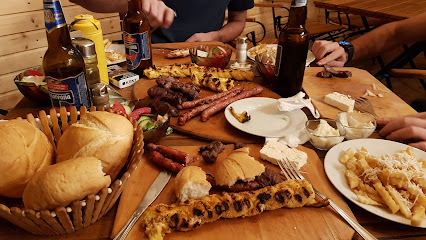
Atelier
Discover the flavors of Romania at Atelier in Pitești – where tradition meets modern dining in a charming atmosphere.
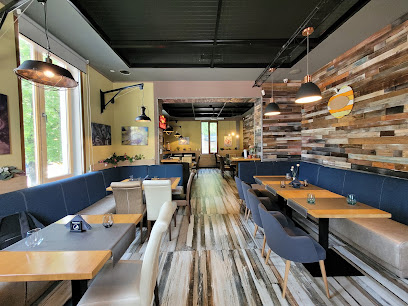
Trattoria by Garden Pub
Savor authentic Italian cuisine at Trattoria by Garden Pub in Pitești, where every meal is a delightful journey through Italy's culinary heritage.
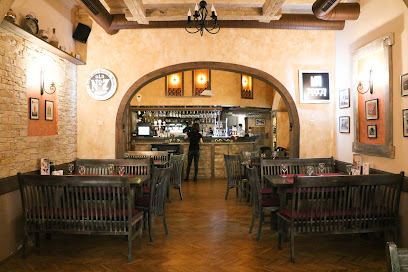
Guinness Pub Lounge
Discover the vibrant atmosphere of Guinness Pub Lounge in Pitești – where authentic Irish cuisine meets local charm for an unforgettable dining experience.
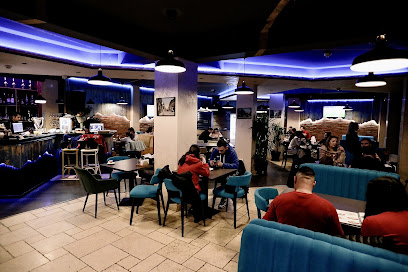
Eden Pub by Alex Matei
Experience delightful Romanian cuisine at Eden Pub by Alex Matei in Pitești - where flavor meets hospitality in a vibrant setting.
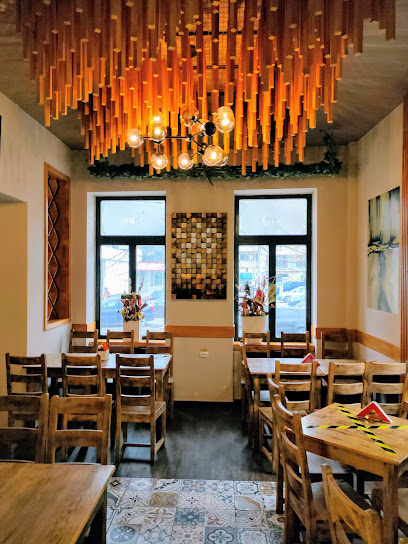
Pavone
Discover authentic Italian cuisine at Pavone in Pitești - where every meal is a celebration of flavor and hospitality.
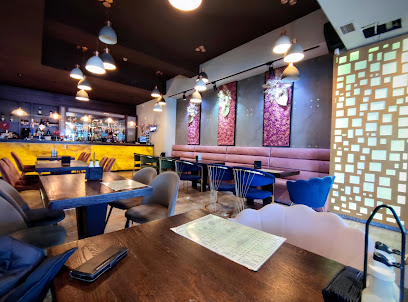
Restaurant Conti
Discover authentic Mediterranean flavors at Restaurant Conti in Pitești - where every dish tells a story of culinary excellence.
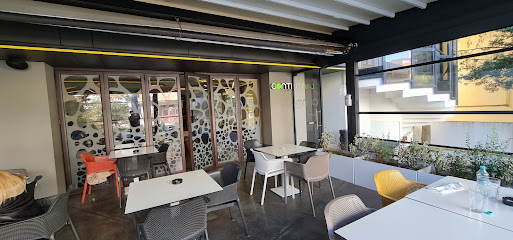
Markets, malls and hidden boutiques
Mall VIVO!
Discover Mall VIVO! in Pitești, a shopping paradise blending fashion, entertainment, and dining for an unforgettable experience.
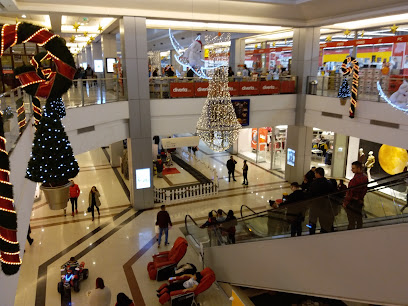
Supernova Shopping Center
Discover the ultimate shopping experience at Supernova Shopping Center in Bradu, Romania, where fashion, food, and family fun come together.
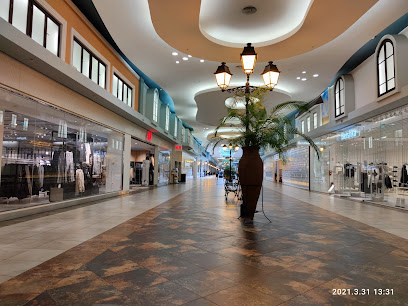
Pitești Retail Park
Explore Pitești Retail Park: a shopping haven with diverse stores, delightful dining, and family-friendly entertainment options.
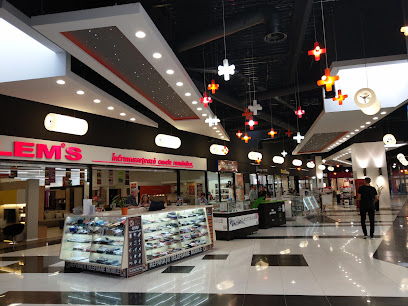
Artizan Urban Coffee Shop
Discover the rich flavors of artisanal coffee in a cozy atmosphere at Artizan Urban Coffee Shop in Pitești.
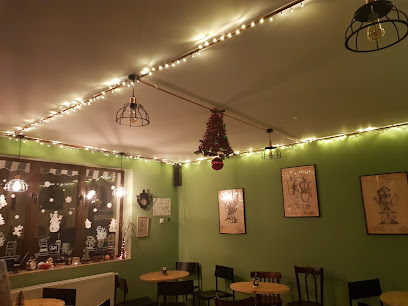
Ice Concept Romania
Explore the elegance of handcrafted jewelry at Ice Concept Romania, a premier destination in Pitești showcasing exquisite craftsmanship and unique designs.
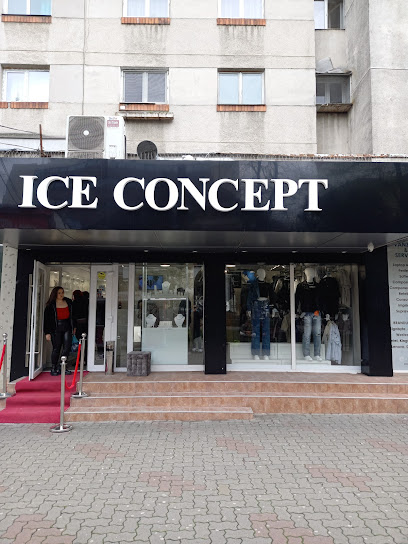
MAGAZIN 2 LARA OUTLET
Explore MAGAZIN 2 LARA OUTLET in Pitești for trendy women's clothing, beachwear, and unique styles at unbeatable prices.
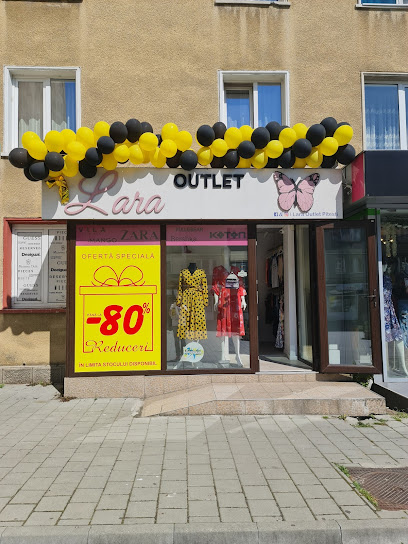
magazin haine-second-hand & outlet AVM
Shop sustainably at the AVM Second-Hand Outlet in Pitești, where every piece tells a story and unique fashion finds await.
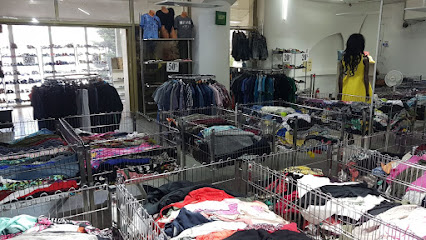
Pick-up point elefant.ro Pitesti
Explore unique shopping at elefant.ro in Pitești, a boutique offering a blend of fashion, local crafts, and an inviting atmosphere perfect for tourists.
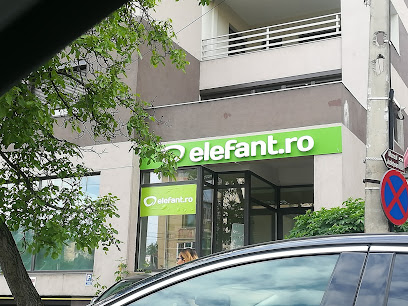
Various Brands
Explore a world of fashion at Various Brands in Pitești, featuring stylish clothing and accessories for every taste and occasion.
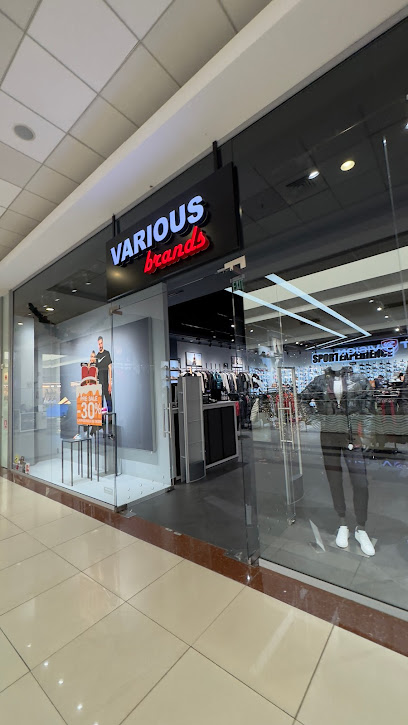
Olivia-Lingerie Boutique
Explore the elegance of Olivia-Lingerie Boutique in Pitești, where exquisite lingerie meets personalized service in a charming setting.
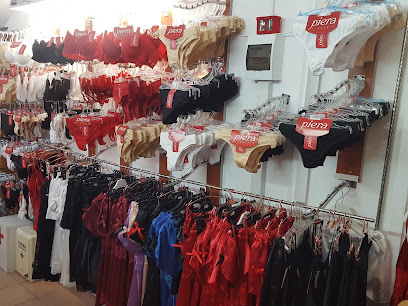
Pall Mall
Explore Pall Mall in Pitești - A vibrant supermarket offering local goods, fresh produce, and a taste of Romanian culture in the heart of the city.
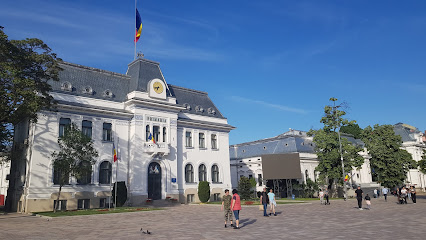
Art Shop (Bizantin)
Explore Bizantin Art Shop in Pitești for a unique collection of local art, showcasing the beauty and creativity of Romanian culture.
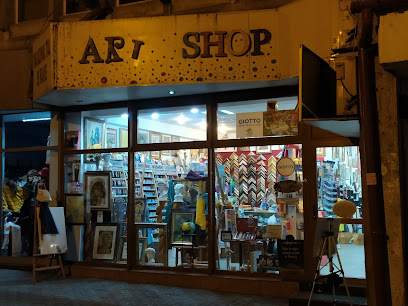
Passioni Art Collection
Explore sustainable fashion and discover unique vintage finds at Passioni Art Collection in Pitești.
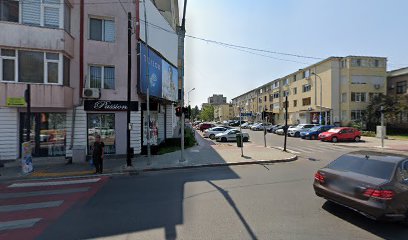
II Traditionale Romanesti
Explore the vibrant traditional fashion at II Traditionale Romanesti, where every piece tells a story of Romanian culture and heritage.
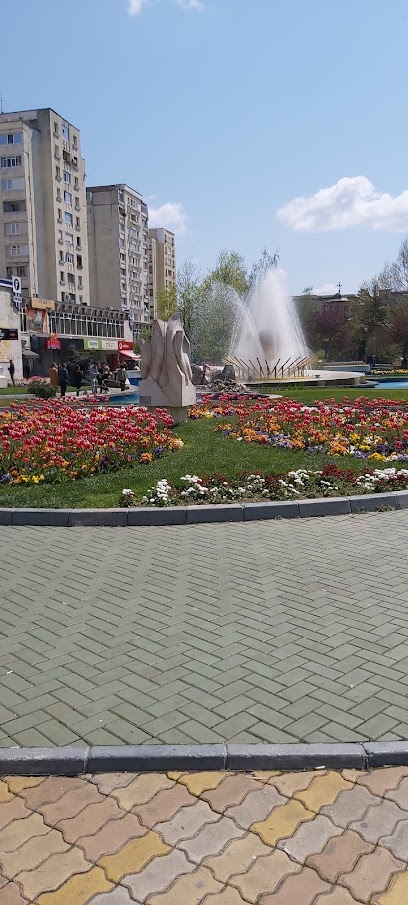
Top Sport Trivale
Explore Top Sport Trivale in Pitești for a fantastic selection of high-quality sportswear and gear tailored for every athlete's needs.
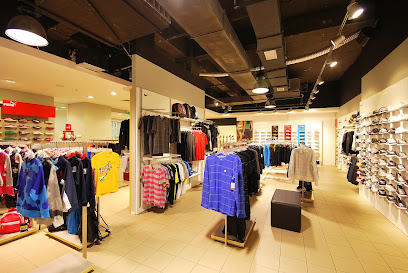
Essential bars & hidden hideouts
Garden Pub
Discover the flavors of Romania at Garden Pub, a serene restaurant in Pitești offering delicious dishes and a beautiful garden setting.
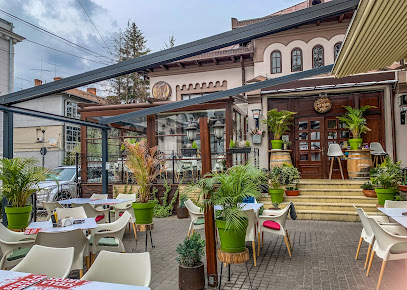
Kell’s Craft Beer
Discover the vibrant craft beer scene at Kell’s Craft Beer in Pitești, where every brew is a celebration of flavor and community.
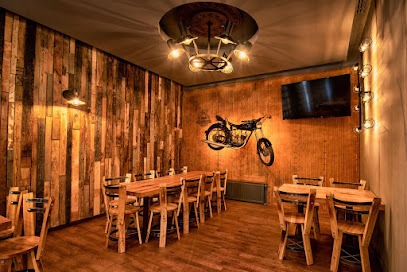
Barock
Experience the vibrant nightlife at Barock, a cozy pub in Pitești, perfect for enjoying drinks and live music in an inviting atmosphere.
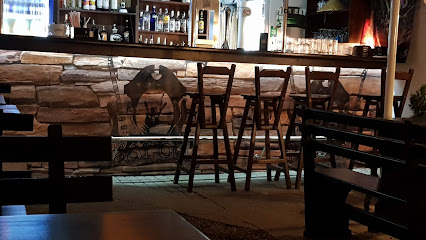
Class Lounge
Discover the vibrant ambiance of Class Lounge in Pitești, where great drinks and a cozy atmosphere await every visitor.
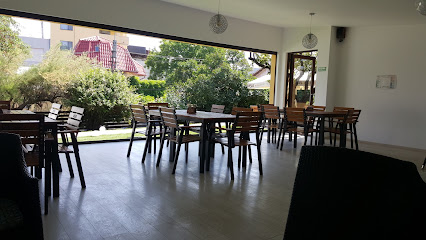
Wales Pub
Discover the charm of Wales Pub in Pitești, offering a delightful blend of local cuisine, cozy ambiance, and an inviting atmosphere for tourists.
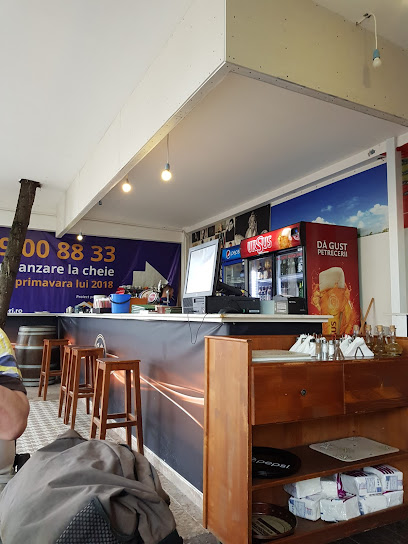
Terasa La George
Explore Terasa La George in Pitești for a delightful dining experience featuring American, Italian, and vegetarian cuisines amid a cozy atmosphere.
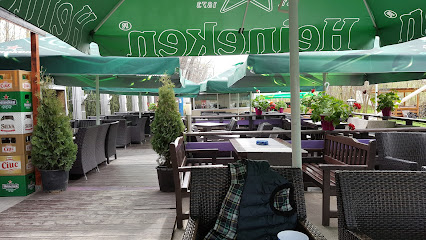
West Bar & Cafe
Experience the lively atmosphere of West Bar & Cafe in Pitești, where themed parties and delicious drinks create unforgettable nights.
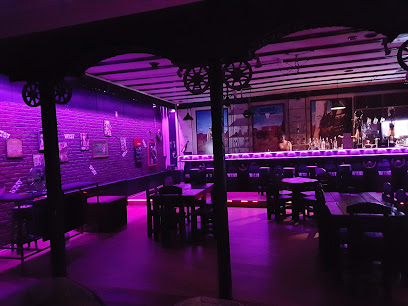
Bar Stefanel
Discover the vibrant atmosphere of Bar Stefanel in Pitești, offering an extensive drink menu and a lively social scene for all visitors.
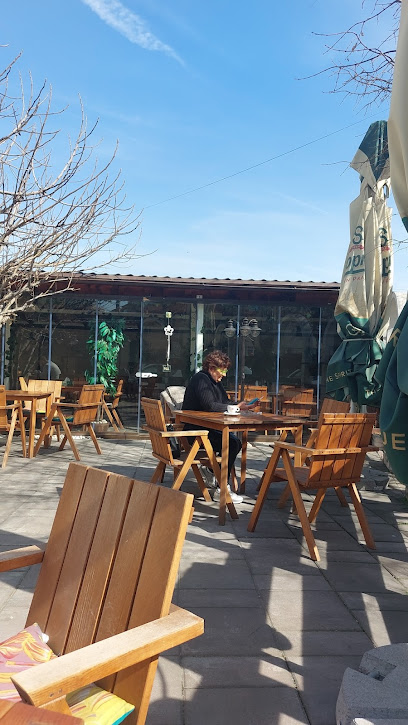
Tezeu
Experience the vibrant nightlife at Tezeu, a popular bar in Pitești offering a wide range of drinks and a lively atmosphere.
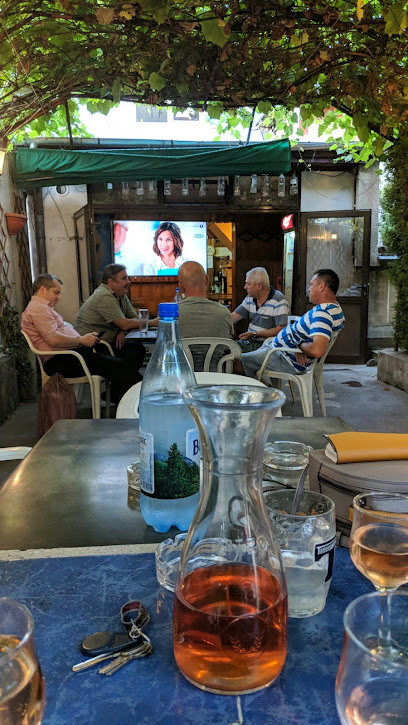
Republic restaurant & pub
Discover a delightful culinary experience at Republic Restaurant & Pub in Pitești, where local flavors meet international cuisine in a lively atmosphere.
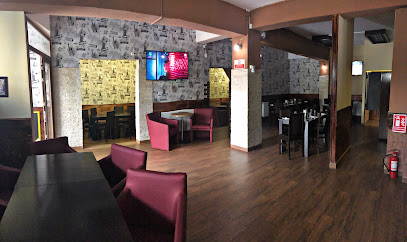
AMERICAN WESTERN
Discover the vibrant nightlife of Pitești at American Western Lounge, where great drinks and live music create unforgettable moments.
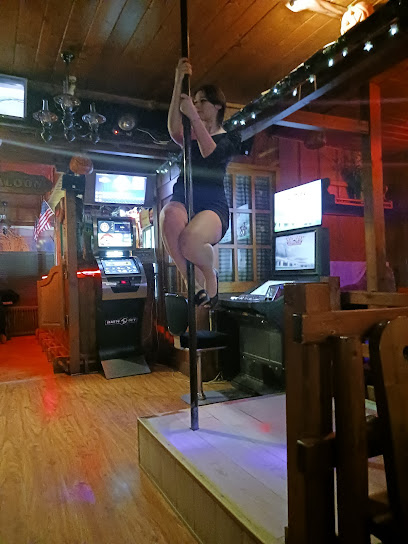
Pub Hush
Discover Pitești's nightlife at Pub Hush, the perfect bar for tourists seeking great drinks and a lively atmosphere.
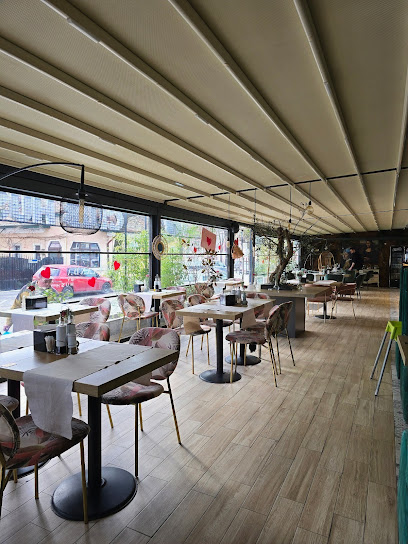
Cornel pub&grill + Piscina
Discover the perfect blend of relaxation and socializing at Cornel Pub & Grill, featuring a swimming pool and a vibrant atmosphere in Pitești.
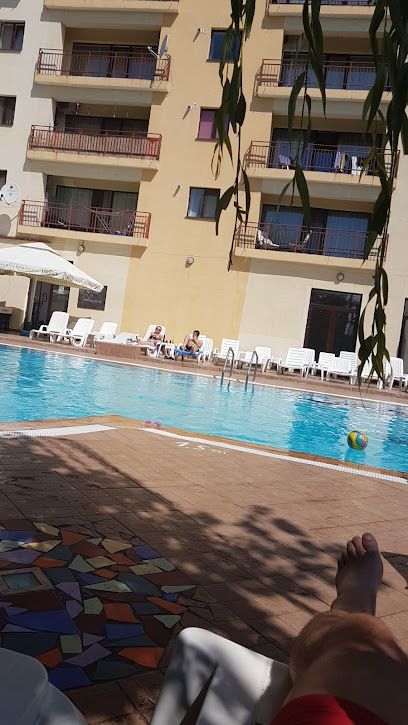
PRESTIGE CAFE & CLUB
Experience the vibrant energy of Prestige Cafe & Club in Pitești, where cozy cafe vibes meet lively jazz and karaoke nights.
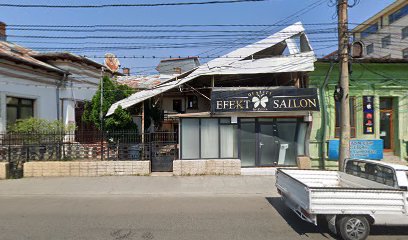
Local Phrases
-
- HelloSalut
[sah-LOOT] - GoodbyeLa revedere
[lah reh-veh-DEH-reh] - YesDa
[dah] - NoNu
[noo] - Please/You're welcomeTe rog
[teh rohg] - Thank youMultumesc
[mool-too-MESK] - Excuse me/SorryScuzați-mă
[skoo-ZAHTS mah] - How are you?Ce mai faci?
[cheh my FAH-chee] - Fine. And you?Bine. Și tu?
[BEE-neh. shee too] - Do you speak English?Vorbiți engleză?
[vor-BEETZ en-GLEH-zah] - I don't understandNu înțeleg
[noo in-TSEH-leg]
- HelloSalut
-
- I'd like to see the menu, pleaseAș dori să văd meniul, vă rog
[ash DOH-ree sah vuhd MEH-nyool, vuh rohg] - I don't eat meatNu mănânc carne
[noo muh-NAHNC KAR-neh] - Cheers!Noroc!
[NOH-rok] - I would like to pay, pleaseAș dori să plătesc, vă rog
[ash DOH-ree sah PLAH-tesk, vuh rohg]
- I'd like to see the menu, pleaseAș dori să văd meniul, vă rog
-
- Help!Ajutor!
[ah-ZHOO-tor] - Go away!Du-te!
[doo-teh] - Call the Police!Chemati Poliția!
[ke-MAHTS po-LEET-see-ah] - Call a doctor!Chemati un doctor!
[ke-MAHTS oon DOHK-tohr] - I'm lostM-am rătăcit
[mahm ruh-tuh-CHEET] - I'm illSunt bolnav
[soont bohl-NAHV]
- Help!Ajutor!
-
- I'd like to buy...Aș dori să cumpăr...
[ash DOH-ree sah KOOM-puhr] - I'm just lookingDoar mă uit
[doh-AHR muh ooit] - How much is it?Cât costă?
[kaht KOS-tuh] - That's too expensiveEste prea scump
[ehs-teh prah skoomp] - Can you lower the price?Puteți să scădeți prețul?
[poo-TEHTS sah skuh-DEHTS prehtzool]
- I'd like to buy...Aș dori să cumpăr...
-
- What time is it?Cât e ceasul?
[kaht eh CHEH-ah-sool] - It's one o'clockEste ora unu
[ehs-teh oh-rah OO-noo] - Half past (10)Zece și jumătate
[ZEH-cheh shee zhoo-MAH-tah-teh] - MorningDimineața
[dee-mee-NATS-ah] - AfternoonDupă-amiază
[doo-puh ah-mee-ah-ZAH] - EveningSeara
[SEH-ah-rah] - YesterdayIeri
[yeh-ree] - TodayAstăzi
[ahs-TUHZ] - TomorrowMâine
[muh-YNEH] - 1Unu
[OO-noo] - 2Doi
[doy] - 3Trei
[tray] - 4Patru
[PAH-troo] - 5Cinci
[cheench] - 6Șase
[shah-seh] - 7Șapte
[shahp-teh] - 8Opt
[opt] - 9Nouă
[noo-wuh] - 10Zece
[ZEH-cheh]
- What time is it?Cât e ceasul?
-
- Where's a/the...?Unde este unul/o...
[OON-deh eh-STEH OON-ool/oh] - What's the address?Care este adresa?
[KAH-reh eh-STEH ah-DREH-sah] - Can you show me (on the map)?Puteți să-mi arătați (pe hartă)?
[poo-TEHTS shuh-MEE ah-RAH-taht (peh hahr-TAH)] - When's the next (bus)?Când vine următorul (autobuz)?
[kund VEE-neh oor-MAH-toh-rool (ow-TOH-booz)] - A ticket (to ....)Un bilet (spre ....)
[oon bee-LET (spreh)]
- Where's a/the...?Unde este unul/o...
History of Pitesti
-
Pitesti, located in the Arges County of Romania, has roots that stretch back to ancient times. Archaeological evidence suggests that the area was inhabited as early as the Neolithic period. The Geto-Dacians, an ancient people who lived in what is now Romania, were among the early settlers of this region.
-
In the medieval period, Pitesti began to take shape as a significant settlement. The first documented mention of Pitesti dates back to 1388, in a document issued by Mircea the Elder, ruler of Wallachia. During this time, Pitesti served as a market town and a strategic point on the trade routes between Transylvania and the Danube.
-
Pitesti continued to grow in importance during the 17th and 18th centuries. It became a notable center for trade and crafts. The town's strategic location made it a frequent target during various conflicts and invasions, including the Russo-Turkish Wars. Despite these challenges, Pitesti managed to thrive and maintain its economic relevance.
-
The 19th century brought significant changes and modernization to Pitesti. In 1857, the first railway in Romania was inaugurated, connecting Pitesti to Bucharest and further enhancing its role as a transportation hub. The town also saw improvements in infrastructure, including the establishment of schools, hospitals, and other public institutions.
-
During World War II, Pitesti experienced occupation and bombings, which caused significant damage to the town. In the post-war era, under communist rule, Pitesti underwent industrialization. The construction of factories and housing projects transformed the town, making it a key industrial center in Romania. This period also saw the infamous 'Pitesti Experiment,' a brutal re-education program carried out in the local prison between 1949 and 1952.
-
Following the Romanian Revolution of 1989, Pitesti, like much of Romania, transitioned to a market economy. The town has continued to grow and develop, with significant investments in infrastructure and urban planning. Today, Pitesti is known for its automotive industry, cultural events, and historical landmarks. The University of Pitesti and various cultural institutions contribute to the town's vibrant intellectual and cultural life.
Pitesti Essentials
-
Pitesti is located in the Argeș County of Romania, approximately 120 kilometers northwest of Bucharest. The nearest international airport is Henri Coandă International Airport (OTP) in Bucharest. From the airport, you can take a direct bus or a train to Pitesti. The journey by bus takes around 1.5 to 2 hours, while the train ride is approximately 2 hours. Alternatively, you can rent a car and drive to Pitesti, which offers a scenic route through the Romanian countryside.
-
Pitesti has a well-developed public transportation system, including buses and taxis. The local bus network covers most areas of the city, and tickets can be purchased at kiosks or directly from the driver. Taxis are readily available and relatively inexpensive. For a more flexible option, car rental services are available, allowing you to explore the surrounding areas at your own pace. Biking is another popular mode of transport, especially for shorter distances within the city.
-
The official currency in Romania is the Romanian Leu (RON). Credit and debit cards are widely accepted in hotels, restaurants, and shops in Pitesti. However, it is advisable to carry some cash for small purchases or when visiting rural areas. ATMs are plentiful and can be found in most parts of the city. Currency exchange services are available at banks, exchange offices, and major hotels.
-
Pitesti is generally a safe city for tourists. However, it is always wise to take standard precautions. Avoid poorly lit areas at night, and be cautious with your belongings in crowded places like markets and public transport. While violent crime is rare, petty theft such as pickpocketing can occur. Neighborhoods with higher crime rates targeting tourists include the train station area and some parts of the city center, so extra vigilance is advised in these areas.
-
In case of emergency in Pitesti, dial 112 for immediate assistance. This number connects you to emergency services including police, fire department, and medical services. The main hospital in Pitesti is the Argeș County Emergency Hospital, which provides comprehensive medical care. Pharmacies are widely available for minor health issues. It is highly recommended to have travel insurance that covers medical emergencies.
-
Fashion: Do dress modestly, especially when visiting religious sites. Avoid overly revealing clothing. Religion: Do respect local customs and traditions. When visiting churches, cover your head and dress conservatively. Public Transport: Do be respectful and offer your seat to elderly passengers. Don't eat or drink on public transport. Greetings: Do greet people with a handshake. A friendly 'Bună ziua' (Good day) is also appreciated. Eating & Drinking: Do try local foods and drinks. Accept food and drink offerings graciously. Don’t refuse hospitality, as it is considered impolite.
-
To experience Pitesti like a local, visit the city's central market, Piața Vasile Milea, where you can buy fresh produce and local goods. Take a stroll through Trivale Park, a favorite spot for locals to relax and enjoy nature. Engage with locals in cafes and restaurants to learn more about Pitesti's history and culture. Don’t miss the Pitesti Prison Memorial, which offers a poignant look at Romania’s communist past. For a unique experience, attend a local football match at the Nicolae Dobrin Stadium, home to FC Argeș Pitesti.
Trending Landmark in Pitesti
Nearby Cities to Pitesti
-
Things To Do in Râmnicu Vâlcea
-
Things To Do in Craiova
-
Things To Do in Brasov
-
Things To Do in Bucharest
-
Things To Do in Târgu Jiu
-
Things To Do in Ruse
-
Things To Do in Sighisoara
-
Things To Do in Pleven
-
Things To Do in Drobeta-Turnu Severin
-
Things To Do in Deva
-
Things To Do in Focsani
-
Things To Do in Gabrovo
-
Things To Do in Cluj-Napoca
-
Things To Do in Shumen
-
Things To Do in Stara Zagora








